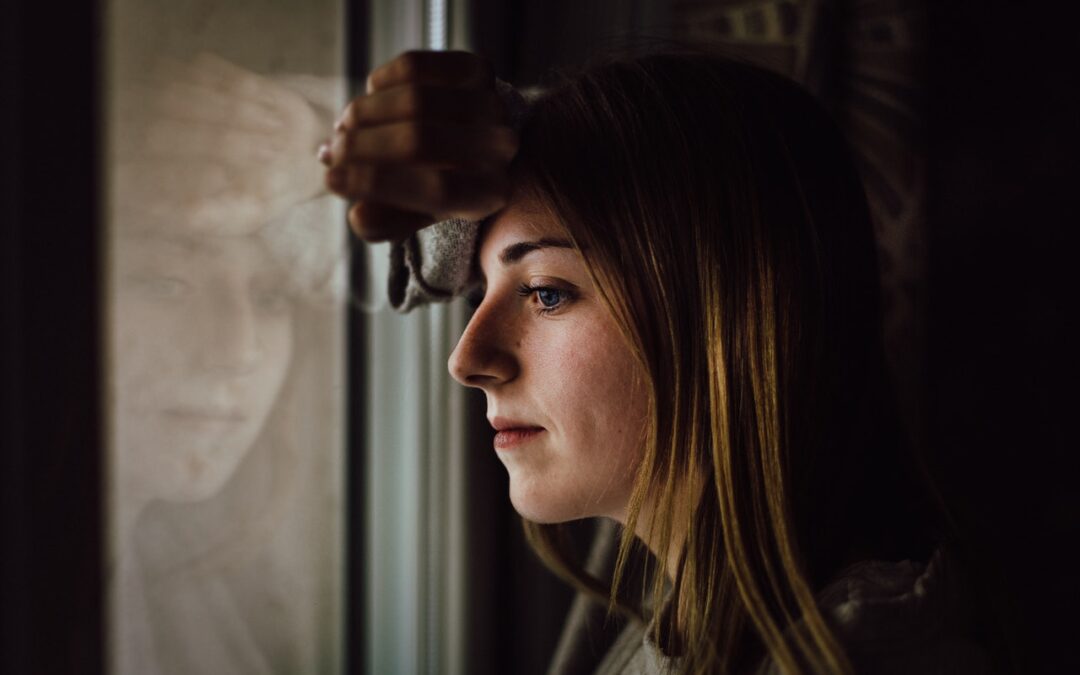
Renaming the Stages of Grief
Chances are, you’ve heard of the stages of grief. Dr. Elisabeth Kübler-Ross introduced them in her 1969 book, “On Death and Dying.” The stages are:
Denial
Anger
Bargaining
Depression
Acceptance
Breaking grief down into defined segments that have a clear beginning and end is a very nice idea. This way, you would know when you’re done with one stage and when to move onto the next. You would follow this progression until you’ve accepted your loved one’s death. Then you could come to peace with it.
The problem is, reality isn’t so simple most of the time.
There is a common misconception about the stages of grief.
I talked to a psychologist who specialized in end-of-life and grief counseling after my 4-year-old daughter’s sudden death in 2009. I asked about the stages of grief. She said she had studied under Dr. Kübler-Ross when she was younger, and explained there is a common misunderstanding about the stages of grief.
Dr. Kübler-Ross used the stages to describe the similar experiences of many terminally ill people facing their impending deaths. The stages were not in reference to someone who had lost a loved one. However, grief from losing a loved one shares very similar emotional responses. So the stages of grief became widely assigned both to people who were dying and those they ultimately left behind.
Most explanations of the stages of grief now include the caveat that grief is a unique journey and many people don’t experience these stages in a prescribed order. It is also pointed out that some people may never experience all five stages.
Instead of a roadmap, these “stages” might be more accurately described as “reactions” to grief.
They should be used to help us understand common emotions experienced on the journey of grief.
But the problem with words is they can carry different meanings to different people based on personal experience. The five stages didn’t resonate with me because my definition of those words didn’t match what I was experiencing.
So I set out to change the existing words into ones that better describe the common experiences shared by those who’ve lost a loved one.
Devastation replaces Denial.
Initially, a terminally ill patient might deny the validity of their diagnosis. After all, we continually hear feel-good stories of people who beat the odds. We hear stories of misdiagnoses or people who are miraculously cured by alternative treatments. So it would be expected that a person’s instinctual survival mode would kick in and convince themselves that they will be one of the lucky ones. Because the alternative is too scary to accept.
The pain is overwhelming in the immediate aftermath of a loved one’s death. So much so, it is impossible to comprehend how you can survive it.
You cannot wrap your mind around how you will go on living in a world that no longer includes your loved one. The word that best describes how I felt during this time was complete and utter devastation.
Just like the denial of a terminally ill person, your mind can pretend the death didn’t really happen in an attempt to avoid the pain. You might continually expect them to walk through the door, or be on the other end of the phone when it rings. Or you might keep telling yourself that this has to be a nightmare you’ll soon wake up from.
While some people never experience these illusions, for others it can go on for months or even years. But unlike a terminally ill patient who is told of a future probability that hasn’t happened yet – and therefore is not absolute – you cannot change the fact that your loved one died. You are simply trying to avoid the devastating pain that comes with that reality.
Anger is still Anger, but also Avoidance.
There is no denying that you are bound to experience some amount of anger with any kind of loss. You may be angry if you feel your loved one’s death was avoidable. Especially if it was at the hands of someone else. You might be angry at God or yourself. Some become angry at family and friends for saying unhelpful (or even hurtful) things. Or because they’re not supporting you in the way you want them to. Others may even be angry at their loved one for dying.
Many people often become angry at the simple fact that the rest of the world continues to go on as if nothing happened.
You are angry at a world that doesn’t seem to acknowledge or care that you just lost one of the most important people in your life. And you can’t figure out how you’re possibly going to live without them.
I’ve heard anger can be your mind’s way of deflecting other, more vulnerable emotions you don’t want to feel. Emotions like fear, shame, guilt, or helplessness. Or a pain so deep and intense, you have not developed the emotional tools you need to deal with it.
Anger, on the other hand, is familiar. It is a primal defense against external threats.
Yet anger isn’t meant to be prolonged or a tool for avoidance. You shouldn’t deny your anger, yet you shouldn’t let it keep you from learning how to better understand and then deal with all of those scarier, more vulnerable emotions.
Bargaining is replaced by “What if…?”
I understand how a terminally ill person would feel compelled to try to change the prognosis by making a deal with God or the universe. But we don’t have any bargaining power if our loved one has already died. Instead, many people find themselves replaying the events that led up to their loved one’s death.
We do this in a futile attempt to re-engineer and alter the outcome.
The bargaining of a terminally ill person is replaced by, “What if…?”
What if they had gone to the doctor sooner, or understood the warning signs for what they were instead of brushing them aside? What if they hadn’t gone on that fateful trip, or went on a different day? There are endless variations of decisions we could have made and actions we could have taken.
Many of us go through this heart-wrenching exercise for weeks or months on end. It becomes a desperate attempt to regain the previously held illusion that we are in control over what happens to us in our lives.
But try as we might, all of these “What if…?” scenarios only end in feelings of regret, helplessness, guilt, or misery. The sooner we decide to stop asking, “What if…,” the sooner we are able to begin the slow journey of tending to our broken hearts.
Overwhelmed replaces Depression.
Read a list of the symptoms of depression when you’ve recently lost someone dear to you, and you’ll likely identify with most of them. However, I’ve heard some psychologists and grief counselors argue that instead of calling it clinical depression, it is simply our natural response to such a significant loss. It includes feelings of sadness, emptiness, and hopelessness. It causes complete and utter exhaustion, sore muscles, loss of appetite or mindless eating. Grief can cause severe insomnia or feeling the urge to escape a painful reality with constant sleep. It can even bring feelings of wanting to end your life; thinking it is the only way you’ll ever escape the unrelenting pain.
Regardless of whatever you or others want to call it, it is completely overwhelming.
Problem can occur when the overwhelming feelings and emotions interfere with your ability to go back to work or go about your daily life. Some people choose to take medication. Others oppose it. Regardless of what you decide is best for you, the important thing to remember is that what you are experiencing is a normal reaction to such a devastating loss.
In my personal experience, it is important that you be patient with yourself and allow all of these feelings to wash over you in order to process them and eventually let them go. The more you try to repress them, the longer they will stay.
Acceptance becomes Healing.
In the case of a terminally ill patient, the idea of acceptance is to stop fighting and find a way to come to peace with the inevitable reality of impending death. I can imagine this is the most difficult step of all. And some may never reach it. Similarly, some who have lost a loved one – a child in particular – may never come to “accept” the death. To many, acceptance often implies agreement or approval. To others, acceptance may imply severing ties to a past we cannot let go of.
Acceptance doesn’t have to mean any of this.
In the case of losing a loved one, acceptance may simply mark the moment we are ready to begin our journey of healing.
Our loved one is dead; we can’t change that. Instead, we have two choices. First, we can choose to stay wrapped up in a security blanket of misery. Why? Some feel it is the strongest, most palpable connection we have left to our loved one. It may feel as though we would be betraying or diminishing our love for them if we were to ever be happy in a world without them. I have been there myself, and place no judgment on those who are not ready to leave that world.
When you are ready, you can choose to begin to find a new way forward in a world that may not include our loved one, but continues to acknowledge and incorporate the deep, profound love we still feel – and always will. We can choose to embrace the overwhelming pain and learn from it. We can learn to allow joy and happiness back into our lives. And ultimately, we can choose to heal.
…
Those are my choices for new words to replace the traditional “stages” of grief. If those don’t resonate with you, then replace them with ones that do. Ultimately, the stages – or reactions – of grief are only there to let you know you’re not alone in this journey.
Wishing you peace.





 This website was inspired by the memory of Margareta Sol Kubitz in hopes of helping others work through the pain of grief.
This website was inspired by the memory of Margareta Sol Kubitz in hopes of helping others work through the pain of grief.